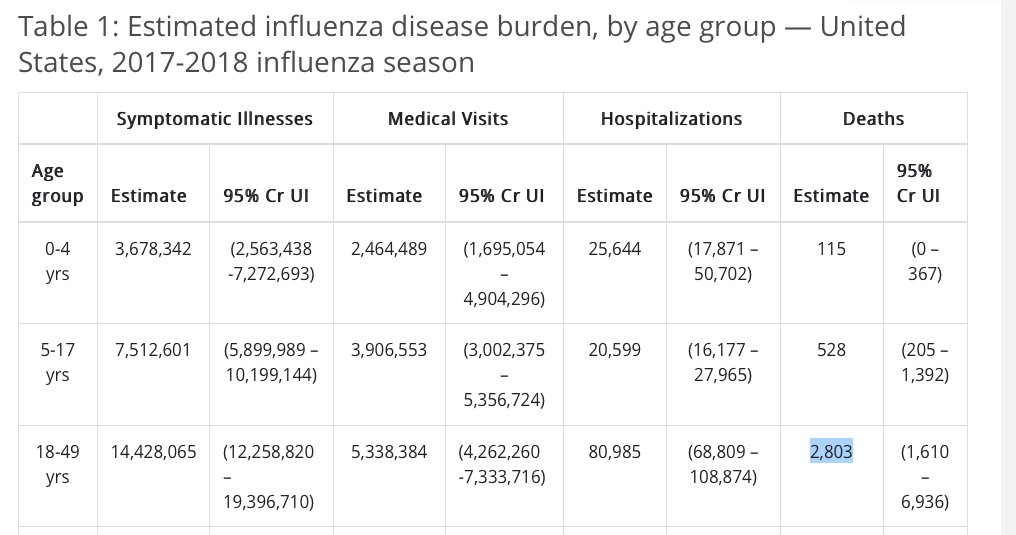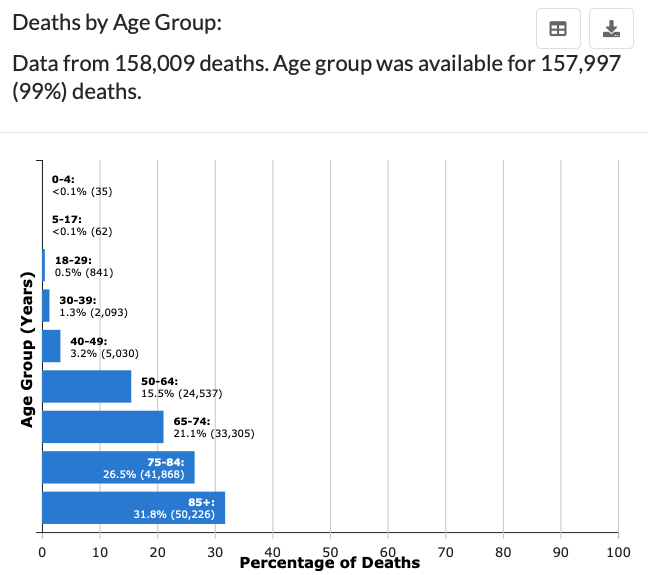
The severity of covid varies greatly by age, with risks of death in young people often said to be equivalent to those of flu. This is one of the most pernicious pieces of misinformation I have noticed in the pandemic. This is why 1/n
first of all, let me be clear that this is *only* based on deaths. There is plenty accumulating evidence that ~10% of people can have long term illness (long covid) lasting for months and this includes young people. I know some. You may too 2/n
It is correct that younger people are much less likely to die from covid, but younger people are much less likely to die period - from covid *or* flu. So how many younger people typically die of seasonal flu? Fortunately @CDCFlu has asked that question for us 3/n
For 2017-2018, an estimated 2,803 people aged 18-49 died of seasonal flu in the US. Note this was out of a total of more than 60,000 making this a pretty bad year cdc.gov/flu/about/burd… 4/n
In case you don't want to click on the link - note too that it was CDC who set the age brackets. I'm not trying to claim that this is the official definition of 'young'. So... how many in these age groups are estimated to have died in the pandemic so far? 5/n 

If you look here you can see that adding up those age groups you get 7,966 covid deaths. You don't need to be the world's greatest epidemiologist to understand this is more than 2,803 6/n
covid.cdc.gov/covid-data-tra…
covid.cdc.gov/covid-data-tra…
again for those who don't want to click on the link. Note that this is not even including all the deaths *so far* (only ~150k of them). So the actual numbers are higher. This also doesn't include any correction for possibly undetected deaths 7/n 

There are more up to date data you can find here, but they don't use the same age brackets. They tell the same story 8/n cdc.gov/nchs/nvss/vsrr…
So, covid is more dangerous than flu in all age groups with the probable exception of the very youngest. Remember those flu figures we started with were from the whole of a bad flu year, and we're only in October when it comes to the pandemic. And cases are going up. Again 9/n
Do what you can to avoid helping spread the virus. Avoid the 3 Cs - close contact, closed poorly-ventilated spaces and crowds. The best way to avoid the need for 'lockdowns' is to not lose control of the pandemic 10/end
• • •
Missing some Tweet in this thread? You can try to
force a refresh


